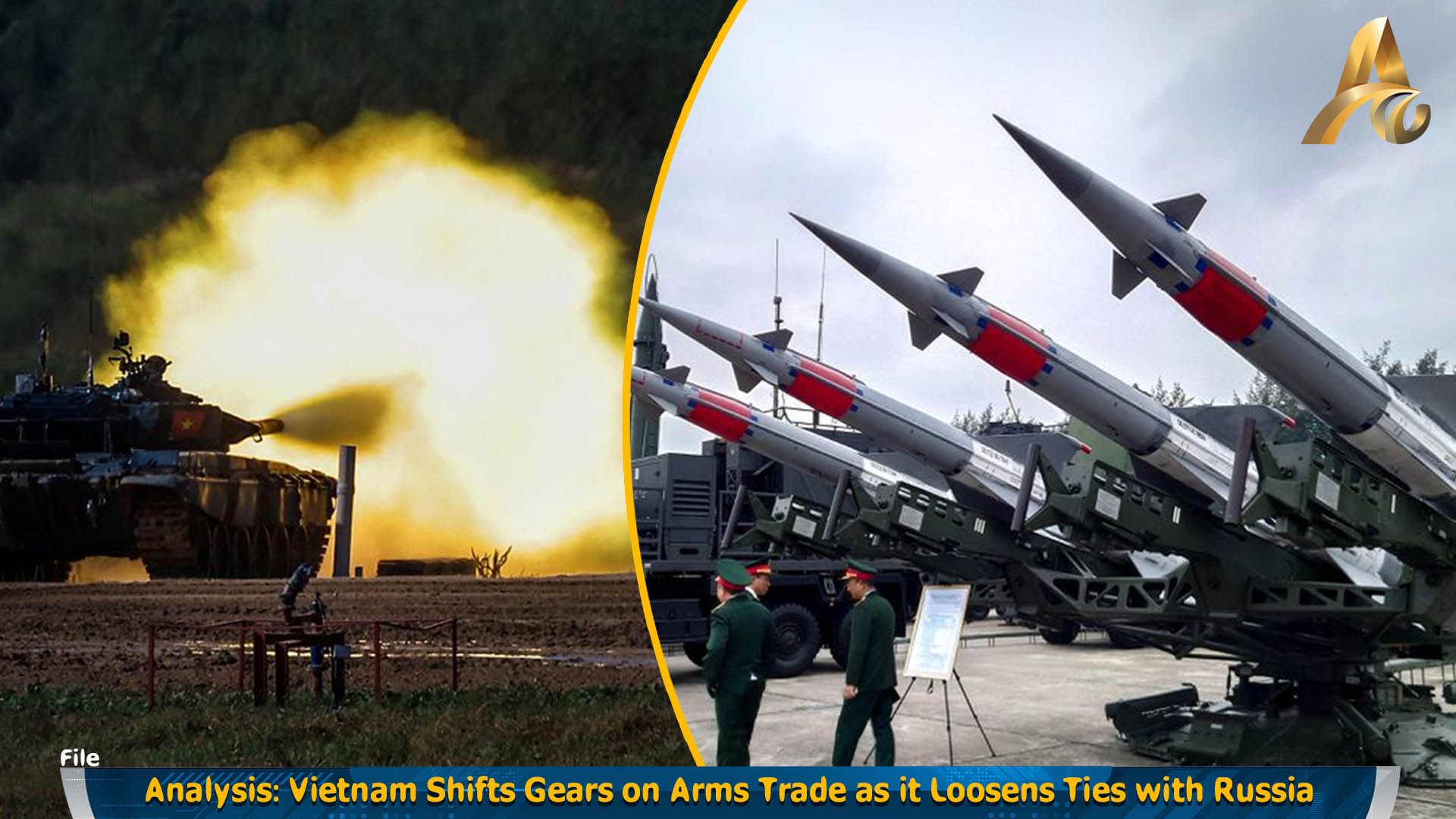HANOI: Vietnam is eyeing a major defense shift as it seeks to reduce its reliance on Russian arms and launch a push to export locally made weapons, officials and analysts said, with possible buyers in Africa, Asia - and potentially even Moscow.
The Southeast Asian nation is one of the world's 20 biggest buyers of weapons amid on-and-off tensions with China, with an annual budget for arms imports estimated at about US $1 billion and set to grow, according to Global Data, a provider of military procurement intelligence.
Most of that money has historically gone to Russia, which was for decades Vietnam's main supplier of weapons and defense systems. That made Vietnam one of the top buyers of Russian arms, according to data from the Stockholm International Peace Research Institute (SIPRI), which tracks global military expenditures.
But that is changing as Vietnam strives to become more self-sufficient, obtain advanced gear that Russia can't provide, and faces Western pressure to reduce arms purchases from Moscow amid its invasion of Ukraine, analysts said.
Instead, Vietnam is turning to suppliers from Europe, East Asia, India, Israel and the United States, diplomats, officials and analysts said. It has also boosted its domestic military industry with support from Israel and other partners, and hopes to export weapons, analysts and officials said.
Nguyen the Phuong, Nguyen the Phuong, formerly a defense researcher at Vietnam National University and now at the University of New South Wales, Australia, said there had even been internal discussions in October about whether the country should sell weapons to Russia - although no decision on that was seen as imminent.
The Russian embassy in Hanoi and Vietnam's defense and foreign ministries had no comment.
Starting Thursday, the country will host its first large-scale international arms trade fair, for which more than 170 companies from 30 countries have registered, the defence ministry said.
They include Western companies such as U.S. defence contractor Lockheed Martin and France's Nexter, and defence groups from Israel, India, Japan and the United Arab Emirates.
The three-day event in Hanoi will help Vietnam "diversify procurement channels and sources of technologies to produce military equipment for the country's armies and for exports," the ministry said in a statement in November.
The country's defence industry produces armed vehicles and light weapons, such as anti-tank rockets, grenade launchers and machine guns, Phuong said.He added that Vietnam had started to develop more high-tech systems, including drones, radars and anti-ship missiles, often in partnership with foreign firms.
The Defence Ministry referred questions about the country's defence industry to the Foreign Ministry, which did not respond to requests for comment.
Siemon Wezeman, senior researcher at SIPRI, said Vietnam's known production capabilities were very limited, with only small reconnaissance drones having been delivered in the last decade - although the country has increased its capabilities for assembling radars, missiles and ships designed by foreign partners.
Phuong said Latin American countries and other Southeast Asian nations are other potential customers.
A half-dozen Russian defense firms are registered for the Hanoi fair, including Rosoboron export, the state agency that imports and exports weapons.
Hop said Vietnam was negotiating possible deals to import satellites and other dual-use products from partners other than Russia.
That would accelerate a downward trend in imports of Russian weapons, whose value fell to just US $72 million last year (30% of overall imports) from a 2014 peak of US $1 billion, which that year was nearly 90% of the total, according to SIPRI.
Imports from Russia have dropped every year since then, except last year, when they slightly recovered after the 2020 nadir. That year, the Covid-19 pandemic reduced Vietnam's military imports to only US $32 million, of which US $9 million worth were Russian arms.
Vietnam has in recent years bought military gear from new suppliers, including the United States, Israel, the Netherlands and South Korea, SIPRI data show.
With the war in Ukraine, which Russia calls a "special operation"; Vietnam appears to have sped up diversification.
India, Israel and Eastern European countries are better positioned as alternative suppliers because they can provide weapons compatible with the Russian systems that still account for 80% of Vietnam's arsenal, analysts said.
For more advanced systems, manufacturers in the West or East Asia may also be potential suppliers, said Carl Thayer, an expert in Vietnam diplomacy at the Australian Defence Force Academy in Canberra.
(SOURCE: Reuters)
























